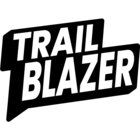Solved
What rules do you use for sending our Knowledge Alerts?
Does anyone have a rule of thumb or workflow they'd like to share for sending out & following up on knowledge alerts? I sent out a knowledge alert on one card on day 1, then sent a reminder for three workdays in a row, and the KA read rates are still pretty low (56%). We're newer to Guru, and this card is to inform a few teams about a pilot we're starting for Guru, so higher readership may come with time, but I'd love to know what works for you all
Best answer by Kaitlin Warren
We make 3 Knowledge Alerts per week of important updates within our department, and we also have struggled with readership for them. Even after a year, our readership isn't consistently where we want it to be, but we've done a couple of things that have drastically improved the number of folks reading their alerts since the beginning.
First, I made an Info card explaining what Knowledge Alerts are, why they're important, how they work, etc. That helped a bit, but not enough, so we actually made it a part of individual KPIs because the alerts contain information that is directly relevant to reps' day-to-day work.
Now, I send separate Knowledge Alerts to each team and pull the read reports at the end of the week for our team coaches so that they can have conversations with folks who are consistently not reading their alerts, particularly if their other KPIs are low.
Something else that we discovered, though, was that we had more than a few folks who didn't realize clicking the "I Read It" button was how we determined whether or not they were reading their alerts, so we had to review that bit a couple of times, too. :seenoevil:
Hope that helps!
Enter your E-mail address. We'll send you an e-mail with instructions to reset your password.




